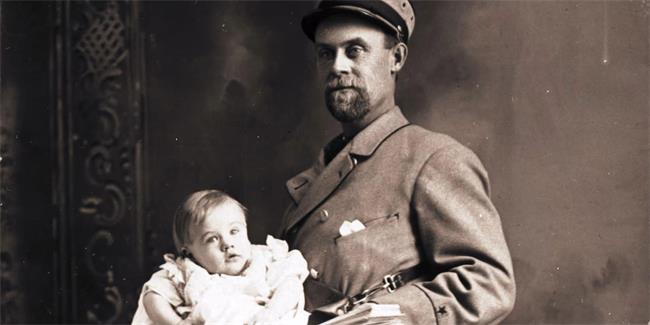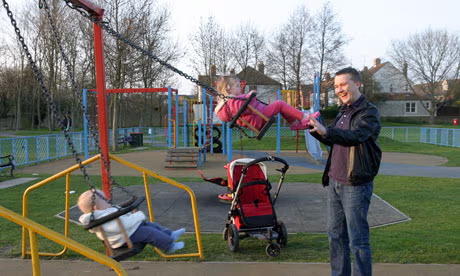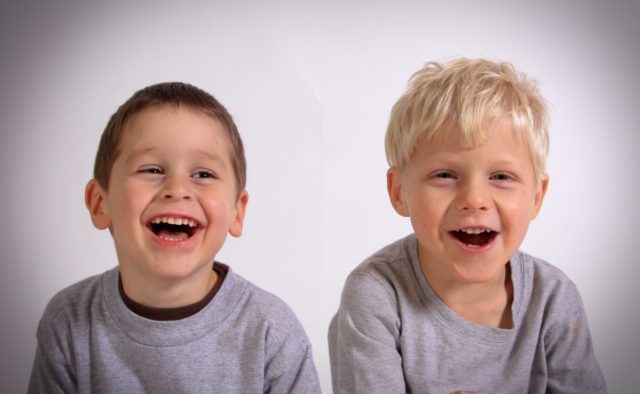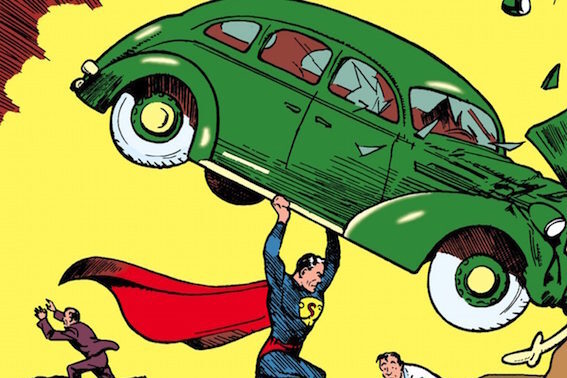10 Scary Truths About How Parents Have Behaved
In the digital world, parenting often wears a glossy disguise. Scroll through Instagram or stumble upon a parenting blog, and you’ll find a flood of cheerful reels and perfectly polished posts—tips and tricks, adorable kid moments, heartfelt stories about how children changed lives. It paints a picture of parenthood that feels more like a Hallmark ad than real life. But step away from the curated content, and the truth is far more complicated—and honestly, more intriguing.
Let’s start with something that might sound unpopular: being a parent doesn’t automatically make someone amazing. That doesn’t mean parenthood isn’t important—it absolutely is—but not all parents are saints, just as not all non-parents are selfish or carefree. In reality, some parents are deeply compassionate and patient, while others struggle with the role, emotionally or even ethically. And then there’s the huge in-between: exhausted, over-caffeinated, semi-functioning adults just trying to make it through bedtime without a meltdown—either their kid’s or their own.
It’s this raw, unfiltered version of parenting that often gets swept under the rug. But honestly, it’s where the most interesting stories live. There’s something incredibly human about a mom muttering a dark joke under her breath after her toddler dumped yogurt on the dog, or a dad who hides in the garage for five minutes of peace. These aren’t just coping mechanisms—they’re real moments that reflect the pressures of modern parenting. They’re part of a cultural reality that often goes unspoken, and yet, everyone somehow understands.
Even science recognizes this complex side. Studies in behavioral psychology like this one suggest that embracing imperfection in parenting can actually lead to healthier relationships between parents and children. It’s not about failing; it’s about being real.
10. 1 in 5 Parents Secretly Regret Having Children – And the Numbers May Surprise You

As kids, many of us grow up believing our parents see us as their greatest joy. We imagine we’re the center of their world, their dream come true. That comforting belief—that we’re loved without condition—follows us well into adulthood. But behind closed doors, the truth can be startlingly different.
In a surprising German study from 2016, researchers found that about 20% of parents openly admitted they regret having children. When asked if they could turn back time, would they choose a life without kids, 1 in 5 said yes. Mothers came in slightly lower at 19%, while 20% of fathers expressed the same feeling. That’s not a number most people expect to see—especially not when it’s said out loud.
What’s even more intriguing is that this phenomenon isn’t isolated. Similar patterns have been observed in the United States, and in Poland, the numbers are even higher. Delving deeper, researchers found correlations between parental regret and difficult childhoods, mental health struggles, financial instability, and marital stress. The more difficult the personal circumstances, the more likely a parent might feel trapped or unfulfilled by the role.
And while not all parents go as far as regret, the broader reality of parenthood’s toll is undeniable. According to the same research, 52% of respondents felt their lives had been significantly limited by becoming parents. Nearly half of all mothers—44%—believed their careers would have flourished had they chosen a different path.
Still, not everything paints a bleak picture. A solid 77% reported finding parenting rewarding, and a heartening 95% said they love their children. But here’s the catch—that leaves 5% who don’t, which in the study sample translates to over 100 parents. And 27% admitted they simply don’t enjoy being parents, even if they love their kids.
These findings are more than just statistics—they shine a light on a cultural taboo. In a world that often treats parenthood as sacred and fulfilling by default, acknowledging regret can be seen as shocking or even forbidden. Yet, understanding these truths is essential. It helps break the stigma around parental mental health and creates space for more honest conversations about expectations, identity, and societal pressure.
Whether you’re a parent, considering becoming one, or just someone who enjoys surprising insights into human behavior, these numbers challenge us to think deeper. Not just about what we expect from others, but what we expect from ourselves.
9. Some Parents Mailed Their Children to Relatives Through the USPS: An Unbelievable Yet True Story

In today’s world, parents are constantly barraged with warnings about potential dangers. From child abuse and school violence to environmental hazards, mental health struggles, and more, it’s easy to feel like the world has never been more perilous. While some fears are grounded in reality, others stem from a sort of modern-day paranoia. Interestingly, this isn’t the first time in history that people have longed for a “simpler, safer” past—even if that past wasn’t as idyllic as it seems.
One of the most baffling and astonishing tales from the early 20th century is the story of parents who actually mailed their children through the United States Postal Service (USPS). Yes, you read that right.
In the early 1900s, the USPS introduced a parcel delivery service, revolutionizing how people sent packages across the country. Suddenly, it wasn’t just letters traveling through the mail—it was everything from groceries to household items. This newfound convenience likely inspired some to think: If a baby fits the size limit for parcels, why not mail them to relatives instead of spending money on train tickets?
And shockingly, they did.
One of the most famous instances involved a family who affixed 15 cents’ worth of stamps to a baby and entrusted him to a mail carrier for a short one-mile trip to grandma’s house. The baby was even insured for $50—a small fortune at the time—just in case something went wrong.
In another mind-boggling case, a 6-year-old child was mailed 720 miles from Florida to Virginia. That’s over 24 hours of travel by train today, but back then, it was supposedly a routine delivery. The sheer absurdity of this practice raises so many questions: Was it legal? Was it safe? And most importantly, how did anyone think this was a good idea?
While it’s tempting to dismiss these cases as isolated incidents, they highlight a fascinating (and deeply unsettling) aspect of history. The early 20th century was a time of rapid technological change, and the postal system was seen as incredibly reliable. For some families, especially those in rural areas with limited transportation options, mailing a child might have seemed like a practical solution.
However, it’s important to note that these events occurred in a very different context—one where child welfare laws were virtually nonexistent. Today, such an act would be considered not only illegal but deeply unethical.
This bizarre chapter in history serves as a reminder of how societal norms and priorities can shift dramatically over time. What was once considered acceptable—or even normal—can later be viewed as unthinkable. It also underscores the importance of vigilance and critical thinking when evaluating claims about safety and progress.
8. Do Parents Think Their Babies Are Ugly? You Might Be Surprised

Let’s be honest—babies aren’t always cute. Sure, we say they are. We coo, we smile, we throw out compliments like “adorable!” or “precious!” without hesitation. But deep down, we know there’s some truth to what comedians, sitcoms, and that one brutally honest aunt have been saying for years: not all babies are born photogenic.
There’s even a classic Seinfeld episode that takes this to the extreme—Jerry and his friends are horrified by a mutual friend’s baby, while everyone else insists the child is “beautiful.” It’s funny because it hits so close to home. In reality, many people fake their reactions when confronted with a less-than-cute infant. But what about the parents themselves?
Surprisingly, research suggests that about 1 in 5 parents privately think their baby is… well, ugly. That’s 20%, a number that feels both shocking and oddly relatable. Studies indicate that newborns are rated as less attractive than older babies by general observers, and even parents aren’t entirely immune to this perception. In fact, the younger the infant, the more likely someone—including the parent—is to think they’re not particularly cute.
Now here’s where things get even more fascinating. A Canadian study into child safety in grocery stores unearthed a strange pattern: less attractive children received less attention and care. The research noted that ugly babies were more likely to be left unattended in carts or not secured properly with safety straps, compared to their cuter counterparts. That raises questions not only about human psychology, but also about unconscious bias in parental behavior.
Is this to say that parents who think their baby isn’t a Gerber model love them any less? Not necessarily. But it challenges our assumptions about unconditional love and perception. Beauty bias isn’t just a cultural myth—it appears to play out in real, everyday decisions, sometimes without anyone realizing it.
This doesn’t mean we should start judging parental instincts—or babies, for that matter. But it’s a stark reminder that human behavior is full of contradictions. Even when it comes to something as sacred as raising a child, our subconscious still plays a role.
7. One – Third of Parents Find Family Time a Drag: What’s Really Going On?

Hey there, folks! Let’s talk about a rather interesting and somewhat unexpected phenomenon: family time. You know, those nights when the whole family is supposed to have a blast together? Well, it turns out that it’s not always as smooth as it seems.
Have you ever been forced to sit through a so – called “family fun” night? Maybe your parents made you play a boring board game or do some other activity that just didn’t float your boat. Surprisingly, it’s not just kids who feel this way. A recent study in the UK has revealed that about one – third of parents actually find family time boring!
Yes, you read that right. One – third! These parents might be putting on a brave face, but deep down, they’re not having the best time either. And it gets even more interesting. One fifth of these parents admit that they don’t even know how to play with their own kids. It’s like they’re stuck in a bit of a parenting rut, unsure of how to connect with their little ones on a fun level.
The same study also uncovered another shocking fact. One in ten kids are aware that their parents aren’t too keen on this so – called “family time.” It’s like there’s this unspoken tension in the air during those family gatherings. Kids can sense that their parents would rather be doing something else.
The study found that a number of factors are to blame. Jobs and housework are often at the top of the list. After a long day at work, the last thing many parents want to do is play with their kids. They’re tired and just want to relax. Another surprising culprit is video games. Some parents think that playing video games with their kids is the key to having a great family time.
In fact, one in three parents believed that gaming together would be a fun way to bond. But here’s the kicker: nine out of ten kids said they didn’t like playing games with their parents. They’d much rather play alone. It seems like parents might be barking up the wrong tree when it comes to using video games as a family bonding tool.
Family time is supposed to be a time for connection and fun. But it appears that many families are struggling to make it work. Whether it’s because of parents’ workload, lack of gaming skills, or simply not knowing how to engage with their kids, the reality is that family time can sometimes be a bit of a letdown.
If you’re a parent, it might be time to rethink your approach. Instead of forcing those traditional family activities, maybe try something new. Like going for a walk in the park, having a picnic, or even watching a movie together. And if you’re a kid, maybe give your parents a break and understand that they might be having a hard time too.
6. Parents Do Have a Favorite Child—And Science Backs It Up

Ask any set of siblings and you’ll likely spark a familiar debate: “Who’s the favorite?” It’s the kind of question that starts off as a joke at dinner and slowly turns into psychological warfare. The usual parental response? “We love you all equally.” But if you’ve always suspected that was a polite fib—science is on your side.
According to multiple psychological studies, the vast majority of parents do, in fact, have a favorite. One large-scale survey found that a striking 74% of mothers and 70% of fathers admitted to favoring one child over the others. Let that sink in. That’s three out of four parents quietly (or not-so-quietly) showing preference.
And here’s where it gets even more fascinating: siblings are often wrong about who the favorite actually is. In a study focused on adult children and caregiving preferences, participants were asked to guess which sibling their aging parents would prefer as a caregiver. Shockingly, 60% guessed wrong. This suggests that even if you’re sure you’re not the golden child—you might be. Or, worse, you might think you are and totally aren’t.
Experts say it’s rarely about love and more about personality compatibility, birth order, or even shared interests. For instance, a parent who values academic achievement might unconsciously gravitate toward their bookworm child. Another parent might feel a stronger emotional bond with the child who confides in them more often.
This favoritism isn’t always harmful, but it can be. Researchers have linked perceived parental bias to increased sibling rivalry, lowered self-esteem, and even long-term resentment among adult siblings. In some families, it’s a barely noticeable undercurrent. In others, it shapes the entire dynamic.
Still, being the “favorite” isn’t always a prize. Favorites often bear the weight of higher expectations or responsibility—especially when it comes to elder care or family obligations.
If you’ve ever suspected your parents had a favorite child, they probably do. But don’t worry—you might not even be the least favorite. Just misunderstood.
5. The Gender Pay Gap Starts at Home—Literally

We talk a lot about the gender pay gap in the workplace—how women often earn less than men for the same jobs, even in 2025. But what if we told you this imbalance doesn’t begin in adulthood? It starts much earlier—and much closer to home.
A major study analyzing over 10,000 families found something both fascinating and troubling: boys receive more allowance than girls for doing similar household chores. In some cases, they’re getting paid twice as much. Think about that. Two kids, two sets of chores—two very different payouts.
The reason? It’s not always about hours worked. Boys were more frequently assigned what parents considered “tough” tasks like mowing the lawn or taking out trash—jobs traditionally labeled as masculine. Meanwhile, girls were often tasked with cleaning, dishwashing, or bathroom scrubbing. Equally necessary work, but viewed differently—and paid differently.
But here’s the strange twist: in some households, boys were rewarded for things like brushing their teeth or taking a shower. Girls? Not so much. It’s a subtle message, but it starts shaping ideas early—about value, about labor, and about who deserves what.
And the disparity doesn’t stop there. According to another national survey, 67% of boys receive an allowance at all—compared to just 59% of girls. That’s not just unequal pay. That’s unequal opportunity.
The implications are big. These early lessons in money management (or lack thereof) can echo into adulthood. Kids begin forming beliefs about self-worth, financial independence, and economic fairness based on how they’re treated at home. And once those beliefs are set? They’re hard to shake.
This isn’t just a quirky statistic—it’s a wake-up call. If we want a future where pay is based on skill and not gender, we might need to start by rebalancing the chore chart and rethinking the rewards we attach to them.
4. The Unrealistic Scholarship Expectations of Gen X Parents

Let’s talk about something that’s both heart – wrenching and somewhat comical at the same time. It’s great to have faith in your child, to believe that they can achieve great things. After all, a little parental support can go a long way in boosting a kid’s confidence. But sometimes, this well – intentioned belief can have some pretty serious financial implications, especially when it comes to college education.
Research has unearthed a rather astonishing fact about Gen X parents. As their teenage kids are gearing up to step into the college world, a massive 9 out of 10 of these parents are convinced that their kids will be able to snag scholarships. Now, while it’s wonderful to have such high hopes for your offspring, the reality might not be as rosy as they think.
The thing is, many Gen X parents are still dealing with their own student debt. They might have taken out loans to pay for their own education, and now they’re still in the process of paying them off. When their kids are on the verge of college, this existing debt makes it really tough for them to pitch in financially. They simply don’t have the extra cash to help cover tuition fees.
In a way, their hope for scholarships becomes a bit of a crutch. They’re pinning all their financial hopes on the idea that their kids will be awarded scholarships or grants. But here’s the kicker: this expectation is far from realistic.
Let’s look at the numbers. Studies show that only just under 60% of students can actually rely on scholarships to fund their college education. And around 50% of students end up needing to take out loans. These figures completely throw a wrench into the Gen X parents’ plans.
It’s important for parents to have a more realistic view of the college funding landscape. While it’s good to encourage kids to apply for scholarships, they should also be exploring other options like part – time jobs, community college first, or even looking into different financial aid programs.
Gen X parents need to understand that the competition for scholarships is fierce. Not every student can be a scholarship winner, and that’s okay. There are other ways to make college affordable. By having a more balanced view, parents can better support their kids both emotionally and financially during this crucial phase of their lives.
3. Most Parents Have No Clue What Their Kids Do Online—And It’s Been This Way for Years

There’s a strange disconnect happening in homes across the globe, and it’s not new. Despite the internet being part of everyday life for decades now, most parents are shockingly unaware of what their kids are doing online—and they’ve been out of the loop for quite some time.
Rewind to 2010: a survey found that only 5% of parents believed their kids were playing games online. The reality? A staggering 77% of kids were deep into gaming. That’s not a gap in knowledge—it’s a canyon.
Fast forward to 2016, and things hadn’t improved. Just 13% of teens believed their parents had any clue what they were actually doing online. And while 60% of teens had profiles on apps their parents didn’t even know existed, only 28% of parents suspected such a thing might be true.
This isn’t just about access. It’s about a breakdown in communication and digital awareness. Take this stat: 67% of parents claimed they had a rule requiring their child to report disturbing content online. But only 32% of kids said such a rule was ever mentioned.
Similar findings echoed in studies from Ireland, where 64% of parents admitted they didn’t know if their child had ever encountered anything upsetting on the internet. That’s not just ignorance—it’s a blind spot.
And even in 2022, the pattern held. A whopping 89% of parents believed they were keeping a close watch over their child’s internet use. But when teens were asked? Only 32% agreed.
Perhaps today’s parents feel digitally fluent enough to assume they understand what kids are up to. After all, many of them grew up with MySpace, Facebook, and the rise of YouTube. But the internet of 2025 moves faster, shifts quieter, and hides better. From anonymous chat apps to ephemeral content and hidden communities on platforms like Discord or Reddit, kids today are navigating worlds their parents may never even visit.
This doesn’t mean every kid is in danger or up to no good—but it does mean that trust without awareness can be risky. The digital literacy gap is real, and if we’re not careful, it grows wider with every new app, trend, or viral video.
2. The Disconnect Between Parents’ Perceptions and Kids’ Academic Performance

Have you ever wondered if your parents had a somewhat skewed view of how well you were doing in school? It’s not an uncommon scenario. Many parents seem to wear rose – colored glasses when it comes to their children’s academic achievements. After all, who wouldn’t want to believe that their kid is a little genius, destined for greatness?
A recent study has shed some light on this rather interesting phenomenon. It turns out that an astonishing 90% of parents firmly believe that their children are performing well academically. They have this over – inflated image of their kids, thinking they’re excelling in school, getting top grades, and are on the fast track to success.
But here’s the kicker. When we look at the actual results from schools, the picture is completely different. For 8th graders, only 29% were proficient in reading at or above their grade level. That’s a huge gap between what parents think and what’s really happening in the classroom. It’s like parents are living in a different world when it comes to their kids’ academic performance.
Now, some might point the finger at the pandemic. After all, the pandemic caused a lot of disruptions in education. Kids lost precious time in the classroom, and online learning wasn’t always effective. This could definitely have had an impact on their academic progress. But can we really blame everything on the pandemic?
There’s another factor at play here, and it’s related to how schools report students’ performance. You see, children’s report cards aren’t always an accurate reflection of how well they’re doing. Take the no – zero policies, for example. If a teacher can’t give a student a failing grade, even if they’re clearly not performing well, how is a parent supposed to know the truth?
A parent might look at a report card with decent grades and assume that their child is doing just fine. But in reality, the child could be far behind their peers. This lack of accurate information from report cards only adds to the disconnect between parents’ perceptions and kids’ actual academic performance.
It’s important for parents to have a more realistic view of their children’s academic standing. They need to dig deeper than just looking at report cards. Maybe they could talk to the teachers more often, attend parent – teacher conferences, or even have their kids do some practice tests at home. By doing so, they can get a better understanding of where their kids really stand and provide the necessary support.
1. A Surprising Number of Parents Regret the Name They Gave Their Child

Choosing a baby name should be one of the most joyful parts of parenthood—until it’s not. Believe it or not, a significant number of parents end up regretting the name they chose for their child. In fact, various surveys have revealed that between 1 in 7 and 1 in 5 parents wish they could go back and pick a different name.
You might assume that parents carefully choose a name they truly love. But sometimes, things change. According to a UK study, even one-third of adults dislike their own first name, and parents themselves often shift their opinion on their child’s name after the fact.
The most common reason isn’t anything the child did—it’s outside influences. About 25% of parents said they stopped liking the name once it became too popular or when a celebrity gave their baby the same name. Suddenly, that unique moniker didn’t feel so unique anymore.
Another frequent complaint? Spelling and pronunciation problems. Parents who went with creative or alternative spellings often found themselves dealing with years of people stumbling through awkward introductions. Names that look cool on paper may not sound so great when shouted across a playground.
In some extreme cases, even world events caused regret. One parent reported regretting the name “Isis” after the rise of the terrorist group by the same name. What was once an elegant, mythological name became a symbol of fear—something no parent could have foreseen.
Name regret may not be universal, but it’s surprisingly common. Whether it’s due to trends, media, or mispronunciations, it’s a reminder that names carry more weight than we often expect—and the world around us plays a bigger role in that meaning than we realize.

























